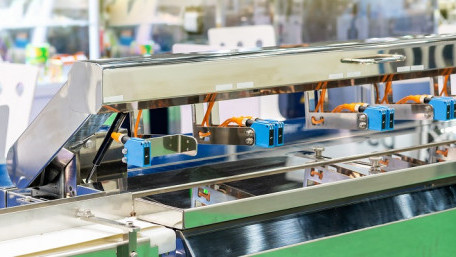
Data has become the currency that enables operational excellence. Sensors are the key links, acting as the eyes and ears of modern manufacturing units by…
Data has become the currency that enables operational excellence. Sensors are the key links, acting as the eyes and ears of modern manufacturing units by providing real-time data on machine performance.
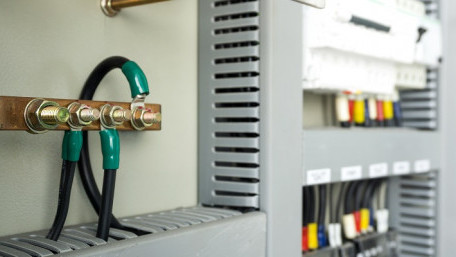
Additional rules for the grounding and bonding of industrial control panels include the sizing of ground conductors and…
Additional rules for the grounding and bonding of industrial control panels include the sizing of ground conductors and the conditions that dictate when power supplies and transformers must be grounded.
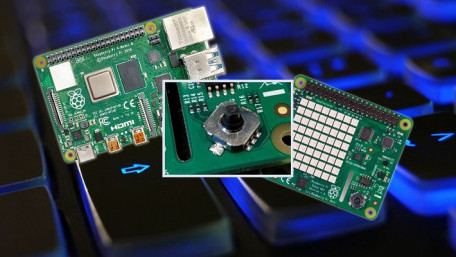
The Raspberry Pi 4 Sense HAT add-on can be used to control output events based on feedback from sensors, and the built-in…
The Raspberry Pi 4 Sense HAT add-on can be used to control output events based on feedback from sensors, and the built-in joystick can be used to trigger those events.
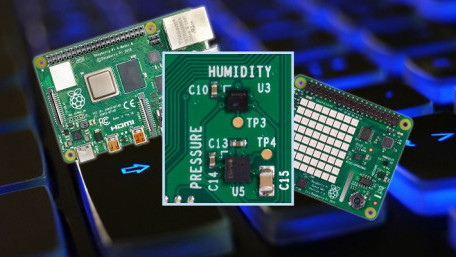
Explore the sensors used to obtain temperature, pressure, and humidity for industrial applications on this value-packed,…
Explore the sensors used to obtain temperature, pressure, and humidity for industrial applications on this value-packed, compact add-on for the Raspberry Pi.
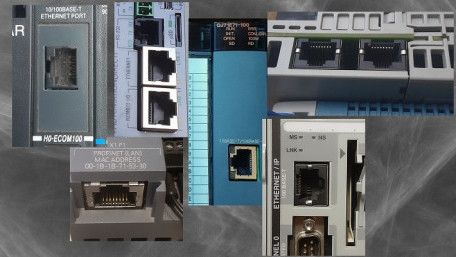
Some controllers and network devices have one port, while others have two. Why is there a difference, and what advantages…
Some controllers and network devices have one port, while others have two. Why is there a difference, and what advantages does having two network ports actually provide?
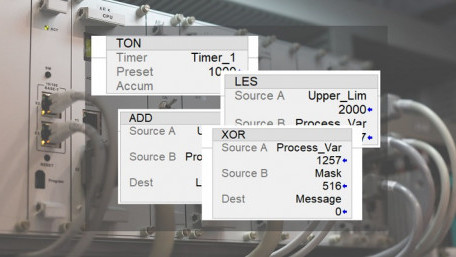
Function block diagram (FBD) programming is a common language for PLCs following the IEC 61131 standard. What is FBD, and…
Function block diagram (FBD) programming is a common language for PLCs following the IEC 61131 standard. What is FBD, and how does it differ from the familiar ladder logic programs?
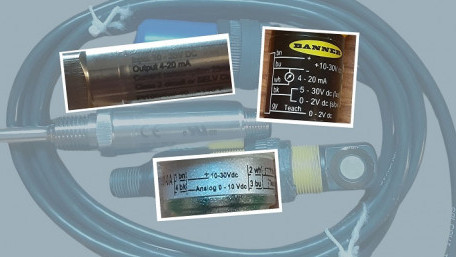
Analog voltage and current are the dominating standards for industrial technology. Is one format better than the other?…
Analog voltage and current are the dominating standards for industrial technology. Is one format better than the other? And if so, why do both signal types still exist in modern systems?
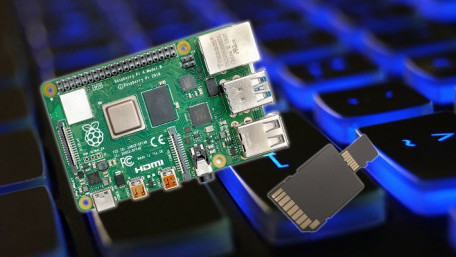
Automation can be inexpensive for small projects by using development boards. This article presents a walkthrough of the…
Automation can be inexpensive for small projects by using development boards. This article presents a walkthrough of the setup and installation steps for the popular Raspberry Pi.
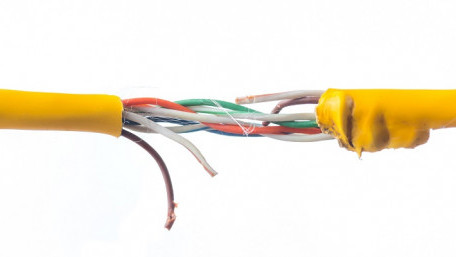
Whether working with measurement tools or process controllers, it is important to recognize faulty display values and the…
Whether working with measurement tools or process controllers, it is important to recognize faulty display values and the best ways to fix them.
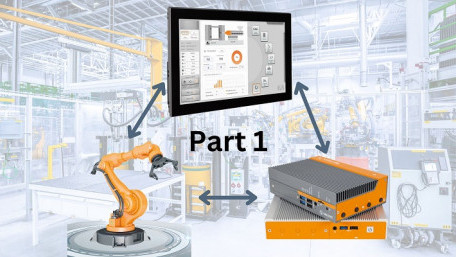
A walkthrough and discussion of a simple web-based HMI solution that could modernize your current HMI technology stack.…
A walkthrough and discussion of a simple web-based HMI solution that could modernize your current HMI technology stack. The first step in the process involves sending data from a device to a server.
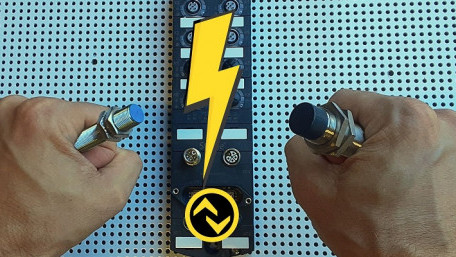
Control.com’s Director of Engineering got to explore IO-Link sensors and what he found might surprise you! Although…
Control.com’s Director of Engineering got to explore IO-Link sensors and what he found might surprise you! Although still considered an “emerging” technology, it’s clear IO-Link technology boasts several bonafide benefits over traditional sensors.

Understanding the building blocks of s-domain analysis and magnitude response theory can go a long way in helping…
Understanding the building blocks of s-domain analysis and magnitude response theory can go a long way in helping engineers predict how and why some system design choices are made over others.
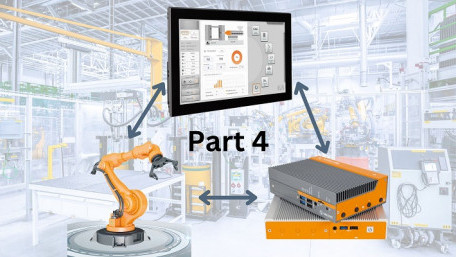
Refining and integrating a front-end HMI application to an API middle layer with real-time data display and historian…
Refining and integrating a front-end HMI application to an API middle layer with real-time data display and historian capabilities for short-term data visualization.
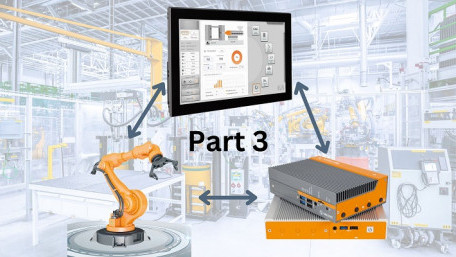
Learn the first steps in focusing on the integration of a front-end HMI application to an API middle layer.
Learn the first steps in focusing on the integration of a front-end HMI application to an API middle layer.
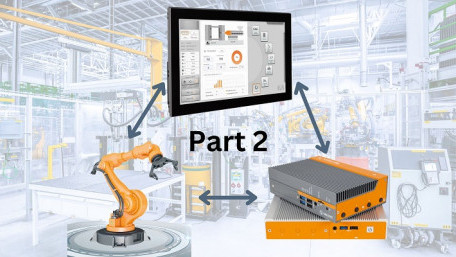
The middle layer, or API layer of a custom-built HMI project involves a server that can submit or receive data to and…
The middle layer, or API layer of a custom-built HMI project involves a server that can submit or receive data to and from a device, either to provide the user interface or interact with the machine.
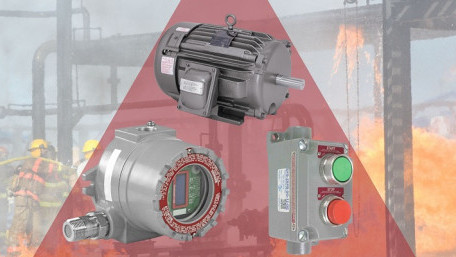
Some workplaces are more dangerous than others, not because of the practices, but rather the products. Where do…
Some workplaces are more dangerous than others, not because of the practices, but rather the products. Where do explosions occur, and what practices exist to reduce such risk for equipment and workforce?

User-defined data types (UDTs) are a powerful and useful tool when applied to their full advantage. However, misused,…
User-defined data types (UDTs) are a powerful and useful tool when applied to their full advantage. However, misused, they can become problematic and introduce roadblocks to troubleshooting and upgrading PLC programs.
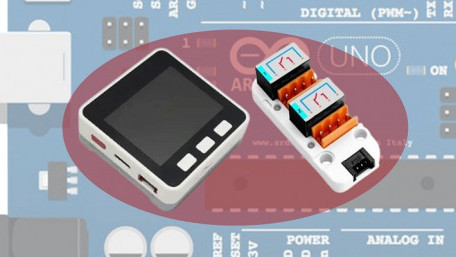
Triggering a machine by an external event often requires a pulse timer for OpenPLC Pulse Timer control. Here’s a brief…
Triggering a machine by an external event often requires a pulse timer for OpenPLC Pulse Timer control. Here’s a brief tutorial on how an M5Stack Core can offer a simple, effective low-cost Arduino OpenPLC HMI solution.
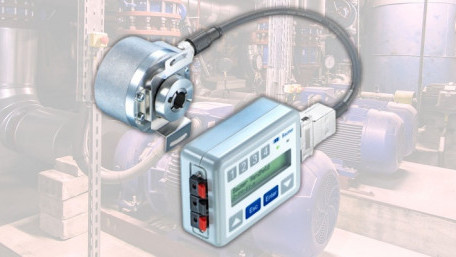
Programmable encoders provide engineers real flexibility to adjust process parameters. From operating theory to…
Programmable encoders provide engineers real flexibility to adjust process parameters. From operating theory to programming methods, here’s everything you need to know to begin leveraging these handy devices.
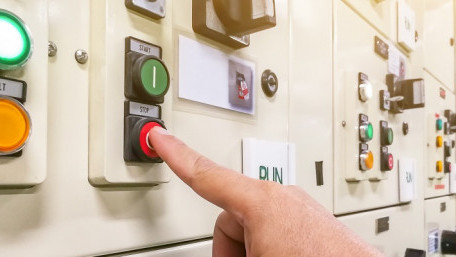
Driving motors is one of the most fundamental automation tasks, but understanding and selecting the proper motor soft…
Driving motors is one of the most fundamental automation tasks, but understanding and selecting the proper motor soft starter for your application may require more investigation than you thought.
